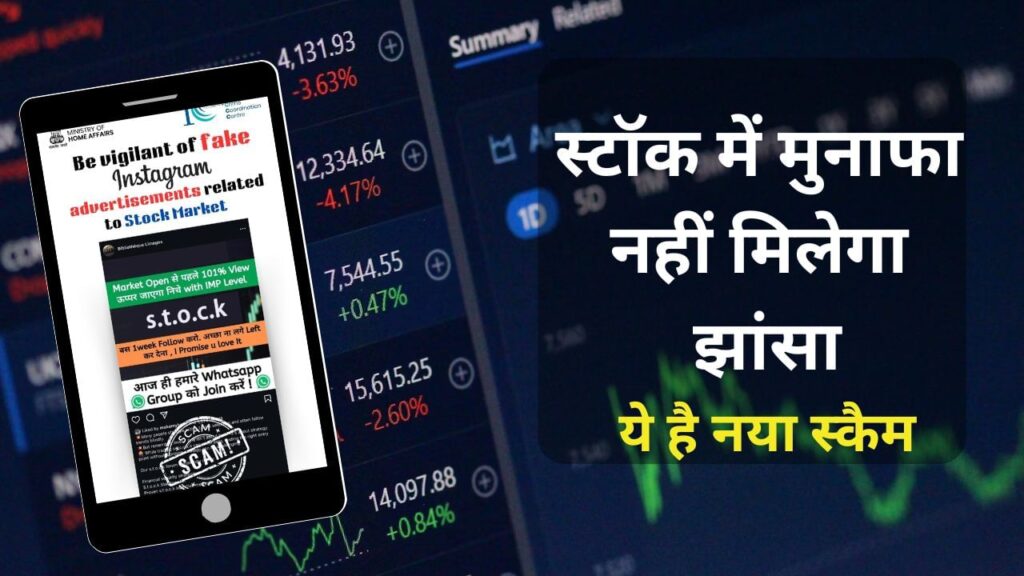Nowadays, many individuals are either investing in the stock market or preparing to do so. At the same time, various social media platforms host groups and individuals sharing stock information. However, following anyone’s advice could lead to significant losses. With the increasing interest in stock market investments, hackers and cybercriminals have begun using new tactics to swindle investors. One of the most common methods is trickery via WhatsApp. These hackers lure investors with promises of profit, attempting to exploit their eagerness.
Scammers are inviting users to WhatsApp groups where they claim to share information about profitable stocks. The messages sent along with the invite often make bold claims, such as a 101% return guarantee, free investment skill training, public free groups, and zero losses. Let’s delve into how these hackers operate and explore ways to protect yourself.
Beware of Luring Messages from Hackers
Hackers send messages on WhatsApp claiming huge profits in stocks. These messages can be so appealing that investors may begin to show interest. For instance, a message might state, “XYZ stock will yield a 50% profit in just 10 days.” Such enticing messages often serve as bait to ensnare unsuspecting investors.
Fake Investment Groups
Sometimes, hackers establish fake investment groups where they disseminate stock information. In these groups, they spread false news to mislead investors and urge them to invest in specific stocks under the guise of valuable insights.
Phony Trading Apps and Phishing Links
Through WhatsApp, hackers may send you links to fake trading apps. Downloading these could lead to the theft of your personal information and bank details. Moreover, they often share fraudulent websites or links that resemble legitimate sites. Clicking on these can compromise your personal data.
Ponzi Schemes
Hackers also employ Ponzi schemes, encouraging you to refer friends in exchange for promises of profit. This operates as a chain system where early investors receive payouts to attract more participants, eventually resulting in everyone losing their money as the scam collapses.
How to Protect Yourself from Stock Scams
- Avoid Tempting Offers: If you receive messages promising extremely high returns, disregard them. There are no guaranteed profits in the stock market.
- Be Cautious of Fake Groups and Links: Do not click on links from unknown sources. Fake trading groups and scam links can be used to steal your information.
- Use Authentic Trading Platforms: Always rely on recognized and safe trading platforms. Never share your bank or personal details on unfamiliar apps or websites.
- Double-Check Information: If you receive information about a stock through WhatsApp or any social media platform, verify it through other trusted sources. Research before making any investments.
- Do Not Share Personal Information: Never disclose your bank account, OTP, or other sensitive details to anyone. Cybercriminals can gain unauthorized access to your accounts.
- Utilize Security Apps and Antivirus Software: Install security applications and antivirus software on your phone to help identify any suspicious links or applications.
Conclusion
The allure of quick profits in the stock market can cloud judgment, making investors vulnerable to scams. By staying informed and practicing caution, you can protect yourself from falling victim to these fraudulent schemes. Always remember that if it sounds too good to be true, it probably is. Stay vigilant and informed to make wise investment choices.

